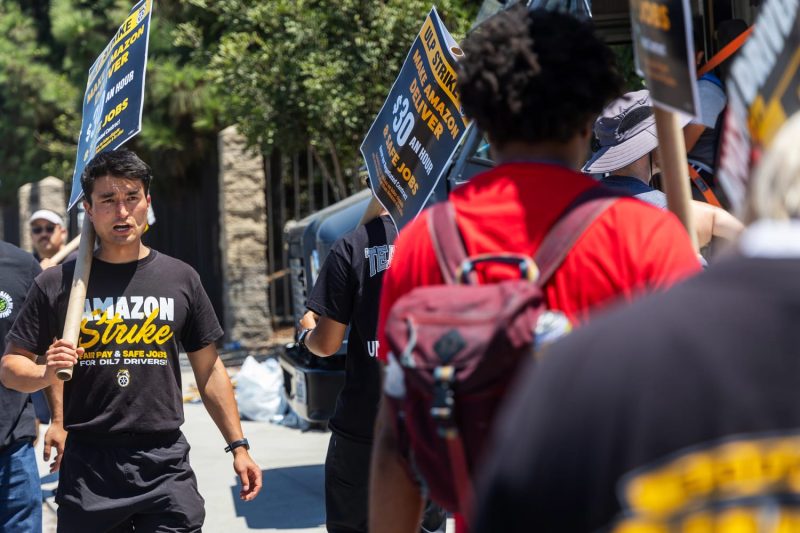Amazon Hikes Wages for Contract Delivery Drivers as Union Pressures Grow
The recent decision by Amazon to increase wages for contract delivery drivers comes at a time when the company is facing mounting pressure from labor unions seeking better working conditions for its employees. The move, which will see drivers earn up to $30 per hour, underscores the growing importance of delivery services in Amazon’s operations and the firm’s recognition of the vital role played by its drivers in ensuring timely deliveries to customers.
One of the main reasons behind Amazon’s decision to raise wages for contract delivery drivers is likely the escalating demands from labor unions, which have been pushing for improved pay and working conditions. The company’s move can be seen as a strategic response to these pressures, aimed at appeasing driver concerns and maintaining a positive relationship with its workforce.
Moreover, the decision to increase wages for delivery drivers aligns with Amazon’s broader efforts to enhance its reputation as a responsible employer and address criticisms regarding its treatment of workers. By offering competitive wages and benefits to its contract delivery drivers, Amazon is not only improving the lives of its employees but also seeking to project a more positive image to the public and stakeholders.
In addition to addressing labor concerns, the wage hike for contract delivery drivers may also have implications for Amazon’s overall delivery network and operational efficiency. By attracting and retaining experienced drivers through better compensation, the company can improve the reliability and speed of its delivery services, ultimately leading to higher customer satisfaction and loyalty.
Furthermore, the decision to boost wages for contract delivery drivers highlights the shifting dynamics of the gig economy and the growing recognition of the importance of fair compensation for independent contractors. As more companies come under scrutiny for their treatment of gig workers, Amazon’s move could set a precedent for other firms to reevaluate their compensation policies and ensure that all workers are fairly remunerated for their efforts.
In conclusion, Amazon’s decision to raise wages for contract delivery drivers reflects a strategic response to mounting union pressures and a commitment to improving working conditions for its workforce. By recognizing the vital role played by its drivers and enhancing their compensation, the company is not only addressing labor concerns but also bolstering its delivery network and reputation as a responsible employer. As the gig economy continues to evolve, Amazon’s action may signal a broader shift towards fairer treatment of independent contractors in the industry.

